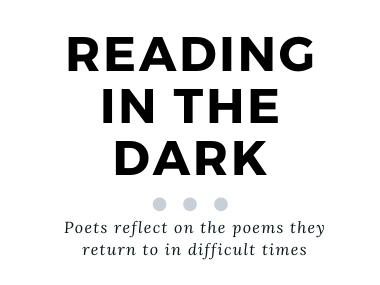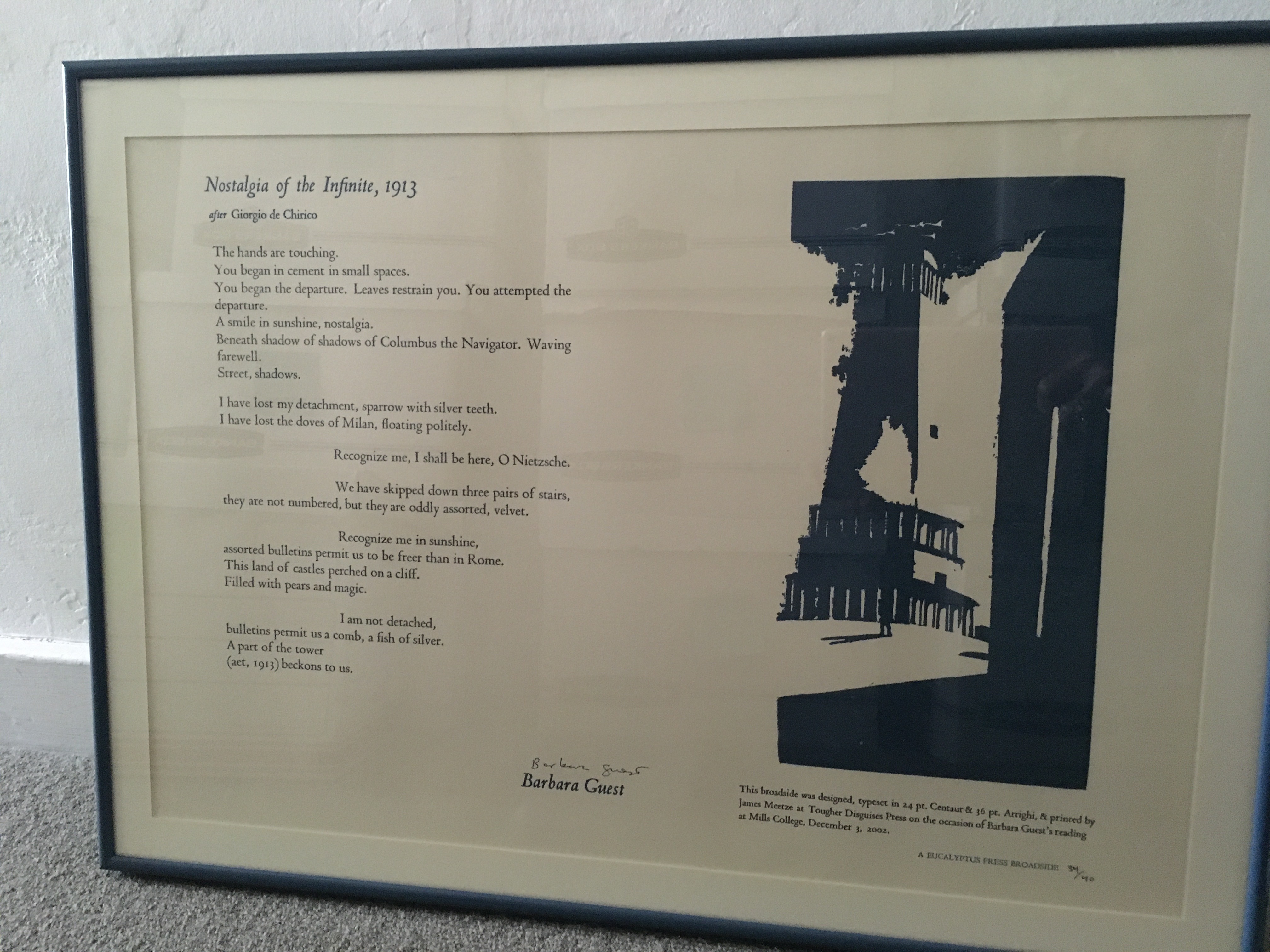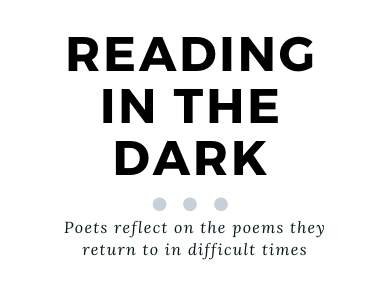Reading in the Dark
Brenda Hillman on Barbara Guest’s “Nostalgia” and “Nostalgia of the Infinite, 1913”

Nostalgia
Hands are touching.
You began in cement in small spaces.
You began the departure. Leaves restrain. You attempted the departure.
A smile in sunshine, nostalgia.
Beneath shadow of shadows of Columbus the Navigator. Waving farewell.
Street, shadows.
I have lost my detachment, sparrow with silver teeth.
I have lost the doves of Milan, floating politely.
Recognize me, I shall be here, O Nietzsche.
We have skipped down three pairs of stairs,
they are not numbered, they are oddly assorted, velvet.
Recognize me in sunshine.
Bulletins permit us to be freer than in Rome.
Castles perched on a cliff.
Filled with pears and magic.
I am not detached,
bulletins permit us comb, fish of silver.
A part of the tower
beckons to us.
From The Collected Poems of Barbara Guest (Wesleyan University Press, 2008). All rights reserved. Reprinted with permission of the publisher.

In response to the Coronavirus pandemic, we asked poets to write about the poems they return to in difficult times—to find solace, perspective, or even a moment of delight. Subscribe to the PSA newsletter for more Reading In The Dark responses and to keep updated with the PSA.
I chose this poem to share — “Nostalgia of the Infinite, 1913” by Barbara Guest — because it is a piece I have hanging in my study and so I think about it most days. I love the poem as well as the painting upon which it is based, one of the commanding paintings of de Chirico — a big white tower full of gorgeous colors. This piece is the 2002 broadside version (beautifully designed by James Meetze) of the first poem in Guest’s volume, The Red Gaze (Wesleyan, 2005), and this version has variants from the book version. Barbara remarked that she had become more of surrealist. I’m not sure why she made the changes she did, but there are some things I adore about this version—I like the complete title of the painting (in the book the title is “Nostalgia”) and I prefer the last two lines in this one, as well as the longer version of the line “The land of castles…” What I love about the poem (both versions) and find oddly comforting are the ways she addresses other artists and states of being in ways both intimate and detached — Nietzsche, de Chirico, a you, a we. I've been asked a lot for poems of solace but I prefer poems of complex spiritual wisdom. At this time when we are all spending so much time indoors and isolated, I find comfort in forms of community that are not the usual ones: the things that we have on our walls; the objects we hold in interior spaces of the mind across time and space; the history of art and philosophy; and the act of communing with one’s great presences, dead and living, has always been meaningful to me.
—Brenda Hillman
Brenda Hillman is the author of ten collections of poetry with Wesleyan University Press, most recently Seasonal Works with Letters on Fire, which received the 2014 Griffin Poetry Prize; and Extra Hidden Life, Among the Days. She serves as the Filippi Professor of Poetry at Saint Mary’s College.

